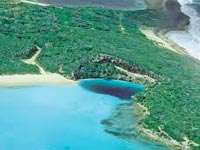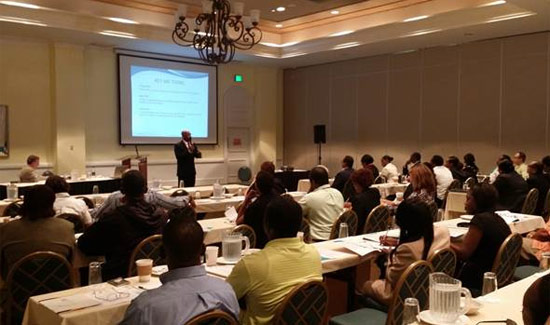 Nassau, The Bahamas – Bahamian entrepreneurs have become economically creative in starting a cultural centre in South Beach. These local business investors are operating under a restaurant license and hope to establish a healthy and safe place for street vendors along East Street South.
Nassau, The Bahamas – Bahamian entrepreneurs have become economically creative in starting a cultural centre in South Beach. These local business investors are operating under a restaurant license and hope to establish a healthy and safe place for street vendors along East Street South.
The South Beach Cultural Centre has built 30 stalls in place on the waterfront to sell fish, crabs, conch, vegetables and homemade crafts in a safe neighbourhood and family-oriented environment.
“As the name implies, it is a local touristic fish fry, produce market, souvenir market, artistic performance centre, and everything cultural,” said Rupert Missick of the South Beach Cultural Centre.
“The closest we will get to catering to tourism is to offer a lunchtime native show. They tried it downtown at the old Savoy some time back and some of the hotels offered it as well. But cruise ship passengers really don’t have anywhere to go. They just knock around, so we can tap into a tour of cruise ship people. Then we can give them a show during lunch, out here in the daytime. Other than that, we have the stalls with souvenirs and gift items, local art and crafts.”
They want to connect with the Ministry of Tourism to support their business endeavour of catering to the cruise ship tourists, touring on buses throughout New Providence. The opportunity will provide gainful employment for at least six people in the beginning and up to 30 people as the cultural centre becomes more popular.
“Employment is flexible and when I say five to six, I mean a core staff of cooks, cleaners, and security,” said Mr. Missick.
“When you’re talking about entertainment, we could easily include up to 30 persons in a week, which could possibly be full-time or permanent, depending on what we offer in terms of a show.”
South Beach’s Cultural Centre looks to the future to attract local musicians, straw vendors and other artisans to bring their talents to the Southern end of New Providence, which currently has no outdoor cultural outlet in the area.
“If we have a Junkanoo Rush Out, a rake and scrape band, a bongo drum player, and a variety of activities, I think 30 persons during the course of a week would seem reasonable,” said Mr. Missick. Although, the centre is in a residential area that is also commercial, a few of the community leaders are supporting the business venture. Mr. Missick believes the concern about noise levels will be outweighed by the encouragement of shared cultural values.
“We don’t intend to get too loud, nor do we intend to run late. So I don’t see us being a disruption to the community. In fact, being here, we are offering a bit of culture that no one has to go across town for. You can come home and relax here for a few hours then go home without having to go to the Fish Fry, Cable Beach, or Paradise Island,” said Mr. Missick.
“I don’t expect any opposition from the community. I wouldn’t be surprised if it happens because there are people who like to test things. But I don’t anticipate it.”
Mr. Missick said he wants to concentrate on creating a decent fish house, as well as offer any kind of seafood fritter and fruit pancake available. So far vendors for food, straw and produce have shown interest in working at the centre. Arts, craft, and souvenir vendors are needed. Those selling raw fish will have a place on the South Beach waterfront.
The centre held a soft opening during the end of the summer of 2010. People showed their support to the centre but said he does not want to encourage a traditional fish fry atmosphere, rather to focus a concentration on a cultural centre.
“I want this to be a cultural centre with a fish fry component to it. This isn’t a place where guys are going to come and hang and drink or knock dominoes all night and curse and argue about sports. I want the larger culture or the higher culture, which includes our religion, our music, our dance, our poetry, and our arts,” said Mr. Missick.
“The Fish Fry to me implies music, food and rum. That’s all it requires. I don’t want the rum or the wild music. But I want the native dishes with a heavy emphasis on fish, every kind of fish. If you come to the islands, you come to The Bahamas, you should get fish.”
By Gena Gibbs



